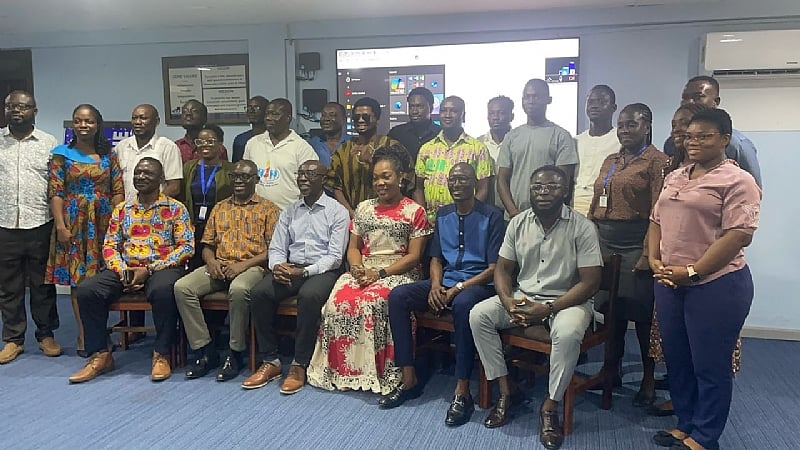The Imperative of Academic Freedom: A Call for Media Engagement in Ghana
The Africa Coalition for Academic Freedom (ACAF) orchestrated a pivotal workshop for Ghanaian media professionals, aiming to empower them as advocates for academic freedom. This initiative underscores the critical role of a free academic environment in fostering democratic values, human rights, and sustainable development. The workshop brought together prominent media figures to delve into ACAF’s mission and strategize collaborative efforts to safeguard academic freedom. This foundational principle of democratic societies is increasingly under threat, making such collaborative initiatives all the more crucial. The training encompassed a comprehensive exploration of academic freedom, its significance, the media’s role in its defense, and the legal and theoretical frameworks that underpin it.
Professor Appiagyei-Atua, ACAF’s Regional Director and legal scholar, highlighted the media’s pivotal role in promoting academic freedom across Africa. He emphasized that academic freedom transcends university walls, encompassing all institutions engaged in knowledge creation and dissemination, including media outlets. He argued for the interconnectedness of knowledge production in classrooms, research settings, and media platforms, emphasizing the need to protect this knowledge to address societal challenges and bolster democratic progress. ACAF’s data-driven advocacy strategies involve monitoring and documenting cases impacting academic freedom, with media professionals playing a crucial role as primary information sources. This underlines the necessity for journalists to comprehend how their work contributes to the broader academic ecosystem.
Professor Appiagyei-Atua further elucidated the inherent link between academic freedom and press freedom, both rooted in the fundamental right to freedom of expression. He underscored the vulnerability of one freedom when the other is threatened, necessitating unified efforts for their protection. Delving into the theoretical and legal underpinnings, he discussed the different generations of human rights, positioning academic freedom at their intersection. He distinguished between negative rights, such as freedom of assembly and speech, which require non-interference from the state, and positive rights, like education and healthcare, which necessitate state resource allocation. He categorized academic freedom as encompassing both aspects, requiring both a robust educational infrastructure and freedom from state interference.
Expanding on the legal perspective, he explained the interplay between international law and domestic legal systems, citing treaties, customary law, and soft law as influencing factors. While academic freedom might not be explicitly codified in every treaty, its connection to rights like education, cultural participation, and freedom of expression ensures its recognition. He highlighted the 1990 Kampala Declaration on Intellectual Freedom and Social Responsibility as a cornerstone document for academic rights in Africa, emphasizing its ongoing relevance and the current efforts to update it in light of contemporary challenges. Turning to the Ghanaian context, he cited government interference in university governance as a major challenge, particularly the presidential appointment of university governing council members as stipulated in Article 70 of the 1992 Constitution, which contradicts Article 195’s provision for institutional autonomy. ACAF’s ongoing engagement with the Ministry of Education and planned formal petition underscores their commitment to addressing this issue.
Zakaria Musah Tanko, a lecturer and media practitioner, echoed the importance of training journalists to grasp the principles of academic freedom and their implications for democracy. He emphasized the multifaceted role of journalists as storytellers, educators, and watchdogs, enabling them to defend academic freedom against political and institutional threats when equipped with a deep understanding of its significance. He encouraged in-depth reporting on issues affecting academic environments, including censorship, political interference, and research restrictions, highlighting the contribution of a free academic environment to innovation and national development. He also advocated for stronger collaboration between journalists and academics, recognizing their shared pursuit of truth and the need to mutually protect the spaces that foster questioning, learning, and societal growth.
Kofi Yeboah, General Secretary of the Ghana Journalists Association (GJA), urged journalists to move beyond superficial reporting and embrace in-depth, analytical storytelling. He emphasized the importance of follow-up reporting, sustained engagement with sources, and deeper investigation to reveal the full context and implications of issues, especially sensitive topics like academic freedom. He stressed the importance of contextualized reporting to clarify complex situations and reveal the true impact of events. Recognizing the role of motivation and support in sustaining quality journalism, he highlighted the importance of professional development, access to information, and recognition in empowering journalists to hold power accountable.
Gloria Hiadzi, Executive Secretary of the Ghana Independent Broadcasters Association (GIBA), reiterated the media’s role in defending academic freedom, particularly in the face of increasing threats to free expression across Africa. She emphasized the workshop’s importance in prompting reflection on fundamental freedoms and the need for their protection. She described academic freedom as the cornerstone of innovation and intellectual progress, emphasizing the stifling effect of censorship on problem-solving capabilities. She also stressed the need for responsible journalism, advocating for truthful, respectful, and impactful exercise of freedom of expression, while simultaneously encouraging scholars to use accessible language to disseminate research findings to the public.
Jeorge Wilson Kingson, Executive Secretary of the Private Newspaper Publishers Association of Ghana (PRINPAG), expressed gratitude to ACAF for including private online news publishers in the initiative. He highlighted the interconnectedness of academic and press freedoms, emphasizing their shared service to truth and justice. He urged journalists to apply the training’s insights to their storytelling and journalistic pursuits, emphasizing the media’s transformative power and the responsibility to wield it responsibly and fearlessly. He also called on editors and publishers to support the advocacy effort, recognizing their role in amplifying the coalition’s mission and utilizing their platforms to prioritize academic freedom. The workshop successfully provided participants with a comprehensive understanding of the intersection of academic freedom, freedom of expression, and press freedom, equipping them with the legal frameworks and practical approaches to advocate for this essential freedom.














